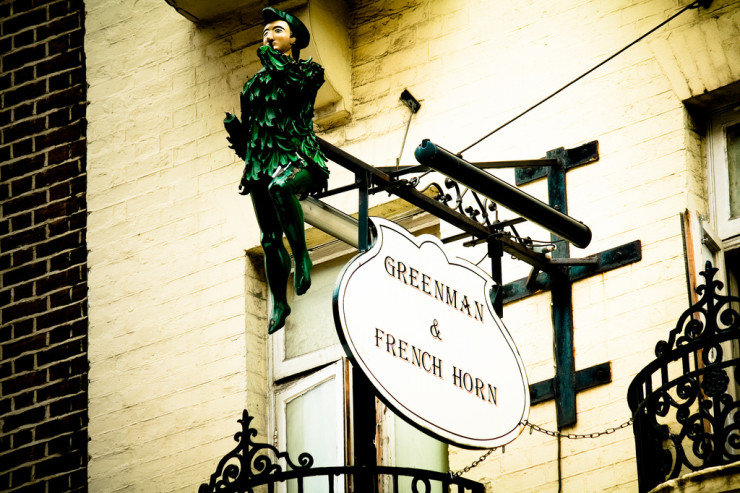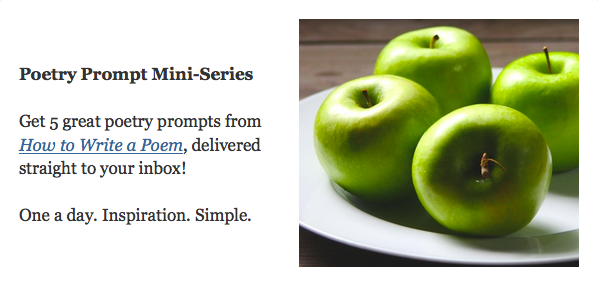
The form was revived, and one century later it was used to deliver two of the English language’s most memorable poems. The first by Paul Lawrence Dunbar, and the second by John McCrae:
We Wear the Mask
We wear the mask that grins and lies,
It hides our cheeks and shades our eyes, —
This debt we pay to human guile;
With torn and bleeding hearts we smile,
And mouth with myriad subtleties.
Why should the world be over-wise,
In counting all our tears and sighs?
Nay, let them only see us, while
We wear the mask.
We smile, but, O great Christ, our cries
To thee from tortured souls arise.
We sing, but oh the clay is vile
Beneath our feet, and long the mile;
But let the world dream otherwise,
We wear the mask!
Learn more about the most famous poem of World War I:
In Flanders Fields
In Flanders fields the poppies blow
Between the crosses, row on row
That mark the place, and in the sky
The larks, still bravely singing, fly
Scarce heard amid the guns below
We are the dead; short days ago
We lived, felt dawn, saw sunset glow,
Loved and were loved, and now we lie
In Flanders fields.
Take upon your quarrel with the foe!
To you from failing hands we throw
The torch; be yours to hold it high!
If ye break faith with us who die
We shall not sleep, though poppies grow
In Flanders fields.
Try a Rondeau
Is there a fervent longing in your heart? Wear your rondeau on your sleeve and create a poem that’s bittersweet or tragic. Remember the rhyme scheme: aabba-aabR-aabbaR
Click to get 5-Prompt Mini-Series
Featured Poem
Thanks to everyone who participated in last week’s poetry prompt. Here’s a rondeau from Rick we enjoyed:
1967
Loving was favored, last strawberry moon.
How fitting our voyage toward Venus in June,
in Monterey, with a song, rose the beautiful Dead,
Century Plaza sent guns, we brought flowers instead.
The Doors were opened hesitation was through.
In the seventh house rose the pumpkin, so went the tune,
let the sun shine we sang and please make it soon,
for there were riots and wars, and through all of this dread,
Loving was favored.
Elvis was married. Fools rush in he would croon.
The cat broke his fiddle and the dish killed the spoon.
The children were lying awake in their beds,
while visions of mushroom clouds danced in their heads.
It was the summer of love, though there was darkness at noon,
Loving was favored.
—Richard Maxson
Photo by L4S. Creative Commons via Flickr.
Browse more Rondeau poetry
Browse more writing prompts
Browse poetry teaching resources

“How to Write a Poem is a classroom must-have.”
—Callie Feyen, English Teacher, Maryland
- Poetry Prompt: Misunderstood Lion - March 19, 2018
- Animate: Lions & Lambs Poetry Prompt - March 12, 2018
- Poetry Prompt: Behind the Velvet Rope - February 26, 2018

michelle ortega says
Awesome, Rick. Reminds me of “American Pie.”
Rick Maxson says
Thank you, Michelle. It was fun to write.
Rosanne Osborne says
Fashioned Choices
The sleeveless dress leaves no place for a heart
There’s nothing there. No place to pin a part
so essential to red blood’s flow
let alone the seat of emotion’s glow.
The omission is barely smart.
While it gives the arm a fresh start
to face the summer air, to chart
its breezes, to thrill to the way it blows.
The sleeveless dress leaves no place for a heart.
And so a choice must be made beyond art.
Vulnerable metaphor will depart
when feelings rest on trends that go
with the changing seasons, the heat, the snow.
The sleeveless dress leaves no place for a heart.
Rick Maxson says
Rosanne, what a witty rondeau. I loved the whole poem, but especially your wrap up.
Heather Eure says
I agree with Rick, Rosanne. A delight.
Rick Maxson says
Please Stay
I heard you singing in the next room,
sporadic—a disordered tune,
and behind the notes, the water ran,
the grace of clinking plates, your hands
warm water soothed, and thus the tune.
Through open windows a sort of choir
attended you and it seemed conspired
to fill each space, like time with sand.
I heard you singing
and knew that pain might stop you soon,
slant your peace toward gloom,
but for now please stay in whatever land
your song exists, like some magic wand
transported you, where in some soothing room
I heard you singing.
Rick Maxson says
should be “sporadically”
Kathy says
Very nice; I can relate.
Rosanne Osborne says
I like the way you truncate the repeated line. I want to try that play with the form.
Heather Eure says
This is lovely, Rick. Makes my heart ache a little.
Rosanne Osborne says
Flirting with Purification
We fear the all-consuming fire,
the ancient dread of holy spire
left from Sinai’s distant judgment,
commandments handed down from that summit
to rein in our lives, keep us from hellfire.
Perhaps, because we secretly admire
the discipline that rules require,
we yearn for the burnishing adjustment,
the all-consuming fire.
Sometimes it seems almost haywire
that fear and peace might well conspire
to mold and shape lives often indulgent,
devoid of ordered control, reluctant
to embrace or to welcome the higher
all-consuming fire.
Rick Maxson says
Rosanne, I clicked the wrong reply. That last one was for your poem.
Heather Eure says
Rosanne, I’m so glad you’re having fun playing with the rondeau form. Thank you for sharing them with us! 🙂
Rick Maxson says
It’s a fun form. Not super easy, but easier than a Villanelle or Pantoum.
Nicely done. Apropos for the times.
Make Rondeaus not war.
Rosanne Osborne says
The fun is taking a line and testing it to see whether the form will wrench meaning from it.